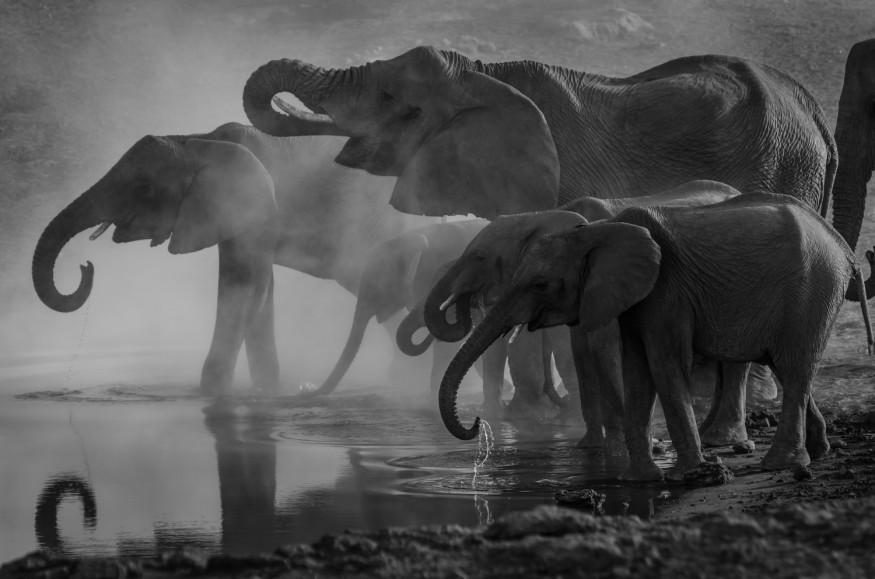Drought has killed over 100 elephants in Zimbabwe, as the extreme climate event dried up available water resources for the large mammals. The mass animal deaths occurred in the country's largest national park, where prolonged dry conditions forced both young and adult elephants to embark on longer journeys in search of food and water, only to die later in the process.
Zimbabwe, just like several other countries in Africa, including Kenya and Somalia, has been experiencing persistent drought conditions in 2023. In November, a similar catastrophe occurred in Kenya where hundreds of wildlife, including elephants and Grevy's zebras, have died due to prolonged drought across the region.
Zimbabwe Drought Kills Elephants

Zimbabwe's Hwange National Park saw the deaths of over 100 elephants when extreme temperatures from drought dried up their waterholes. The nation's largest national park is home to approximately 45,000 elephants and complex biodiversity which includes more than 100 mammal species and 400 bird varieties.
Park authorities stated that despite efforts to sustain water sources for the park's wildlife with 104 solar-powered boreholes, the infrastructure is still not enough to curb or mitigate the impact of the Zimbabwe drought.
Based on reports earlier this year, the long climate change-induced droughts in Zimbabwe have taken its toll in other reserves across the country. In Hwange National Park, 16 buffaloes were also found dead in November.
Also Read: Farmers in East Africa Hopeful for Coming Rainy Season After Worst and Prolonged Droughts
Africa Drought
Zimbabwe's drought is only the tip of the iceberg since a large portion of the continent has also experienced similar conditions this year, as mentioned earlier. According to the World Health Organization (WHO), millions of people face acute hunger in the greater Horn of Africa as the region experiences one of the worst droughts in recent decades.
Aside from the decreased availability of water sources, outbreaks of infectious diseases like cholera, measles, and malaria are also of significant concern. Wild animals are also not spared from the African drought as it also threatens ecosystems and the food chain, in addition to dried-up bodies of water.
Drought and Wildlife
Drought impacts not only humans, agriculture, and economies but it can also damage or destroy natural ecosystems where wild animals and plant life thrive. While there is strong evidence that drought has been around since ancient times, natural disasters is relatively hard to forecast compared with extreme weather events like hurricanes and tornadoes.
According to the National Centers for Environmental Information (NCEI), drought is a complex phenomenon that is difficult to monitor and define, comparing that hurricanes are easier to observe and measure since they have a definite beginning and end. On the other hand, drought is a gradual event that impacts different sectors of the economy.
Experts in multiple fields describe drought as the lack of precipitation and the absence of water for a prolonged period, in addition to above-average temperatures and humidity.
© 2025 NatureWorldNews.com All rights reserved. Do not reproduce without permission.





